"Are you training the next generation of construction project managers?" Are you training your Project Managers (construction managers, site managers, site agents)?Many construction projects fail due to poor project management. Contractors are continually bemoaning the fact that they can’t get good people anymore. But what are these contractors doing about it? They seem to think they can simply approach a recruitment agency, or advertise, and they’ll have ‘ready-made’ experienced and skilled construction project managers wanting to work for them whenever they’re required. Yes, there are some excellent project managers, but the chances of one of them knocking at your door when you need them are slim. Unfortunately there are also plenty of poor project managers and some of these may knock on your door. Employing the right people in construction So what can contractors do about the skills shortage – or are they just going to whinge and blame the lack of skills for poor performance, without actually doing anything positive to rectify the situation? My journey to becoming a construction project manager – and going furtherI was fortunate that as a newly qualified civil engineer I applied for several jobs and most companies offered me a job – so I had choices. I selected what I saw as a growing contractor that executed projects I was interested in. They had recently been awarded a large civil construction project where they needed me, so I thought it would be good experience. Oh, and of course the pay was better than most of the others. But I made a fortunate choice. There I was almost first on the ground on a big construction project, but completely green with no construction experience, initially working with the surveyor, then looking after the soils and concrete testing laboratory. Getting involved with running the concrete mixing plant and helping schedule and organise large concrete pours. While all around me the project grew. Earthworks, then concrete structures, some building work, eventually the mechanical and electrical contractors moved onto the project (these weren’t in our scope, but I still watched and took note) and finally the roads around the completed facility. What a great experience to witness. I was always asking questions, asking for more work. I was even given boring stuff like checking the cost ledger – boring but essential grounding that helped me understand how important it was to check and understand the project’s costs. After six months I was given my own section to manage which was several kilometres from the main construction project. There I learned about formwork, scheduling (programming), ordering materials, planning the project and overcoming the normal obstacles that occur every day on construction projects. Yet fortunate enough that experienced project managers were close at hand watching my every move, but seldom interfering unless I was desperate for help. Twelve months later I was given my own small construction projects to manage. A couple of Supervisors and I managed the project. I planned the project from scratch, sourced the construction equipment, ordered the construction materials and appointed the subcontractors. Every month I measured the completed work and submitted monthly valuation claims. There was additional scope I had to price, so I learned the basics of pricing construction work. In those days we did our pricing long-hand. We broke everything down into labour, materials, equipment and subcontractors. On the blank page on the left-hand side of the bill of quantities we did our calculations. (Pencil, paper and a calculator – sorry showing my age here, but sometimes long-hand is good as it shows you the basics!) In many ways I was lucky and only saw my first planner on my project in my fifth year in construction – before that I did the scheduling. In the first six years I did all my own measuring, the cost reports and variation claims. We didn’t have safety officers and quality control managers so we did all the paperwork ourselves – granted only half what’s expected now. But what great all-round experience – experience that’s stood me in good stead today. In all of this I was fortunate to work with many great supervisors and foremen who passed some of their experience and knowledge to me. My managers and directors were generally experienced, knowledgeable and helpful. I learned from all of them – including sometimes what not to do. This is my story Paul Netscher "I was fortunate to work with many great supervisors and foremen who passed some of their experience and knowledge to me." Recruiting the next generation of construction project managersUnfortunately many young graduate engineers and project managers can’t even get their first job – why – because they don’t have experience! Some contractors view them as unemployable. When I managed my own construction division I saw it as a tragedy that many young construction graduates couldn’t find work. In fact there were some courses that required students to complete six or twelve months of practical experience with a company before they would be granted their qualification. These poor students couldn’t even complete their qualifications because construction companies wouldn’t employ them. I employed many of them. They were relatively cheap and provided useful help on our construction projects. But more importantly, at the end of the specified period they had received valuable construction experience with a reputable construction company where they learned the basics well, and of course they could finally obtain their degree, or diploma, and continue with their career. But, there was another benefit for us – at the end of the year we were able to select the best and employ them as qualified engineers. We had a year to understand them, and they had a year to decide if they enjoyed working with us. Surely a win-win for both parties with a better chance of success than employing someone we didn’t know. The other benefit was that most of these young newly qualified engineers became incredibly loyal to the company because we had helped them gain their qualifications – we had extended a lifeline to their career. Most became successful and the company benefited hugely from their experience and skills – experience we had provided. What happens today? "You don't always need the most experienced person, just someone diligent and willing to learn." How contractors sabotage the next generation of project managersI’ve seen young engineers unable to get a job, become disillusioned and leave the industry before they started. Others in desperation join construction as a labourer or work themselves up through the trades. When contractors do employ young engineers they are sometimes put in a pigeon hole, only good to do quality inspections for a couple of years, or manage the laboratory or the concrete mixing plant. Then when the contractor needs a project manager they take one of these engineers, or a Supervisor, or someone in another role, and appoint them as the project manager. Yet these individuals have no experience in managing a project! Many contractors operate with specialists, who only do planning, or quality control, or safety, or claims and measurement. When someone finally makes it to become a project manager, site manager or site agent, they rely on these specialists. But often, the construction project managers don’t understand the basics of what these people do, so they aren’t capable of interrogating a construction schedule, or checking that the safety officers or quantity surveyor is doing their job properly. They don’t understand how to prepare a construction schedule, can’t measure the completed work, they often don’t understand cost reports, can’t price a construction project, can’t interpret the contract document, don’t understand the basics and unfortunately can’t plan the construction project. (planning your construction project) Then when things go wrong on their project their bosses or managers blame them. The sad thing is that some of those same managers don’t know any better themselves, and are incapable of correcting them or offering advice when things start going wrong because they were never trained properly. "Careers can be destroyed when inexperienced project managers are put in charge of complex construction projects without support.." I’ve seen project manager’s careers destroyed before they even started because they were put in charge of a project and didn’t have the experience or knowledge required and weren't supported when they got into trouble. So what should contractors do to improve the skills shortage? How contractors can improve the skills shortageWell firstly let’s employ newly qualified engineers and project managers, even if they don’t have experience. Don’t pigeon-hole them in one position for years – even if they’re doing well in that position. Give them a variety of experience. Ensure they are exposed to:
"A good mentor is invaluable." Allocate a mentor to them. Ensure your team understands how important it is to help and correct them. Send them on training courses where necessary (unfortunately many of our universities and technical colleges don’t provide some of the knowledge we require from our future project managers) – these may include communication, letter writing, scheduling, form-work design and the contractual and financial aspects of construction. Training and mentoring in construction When they’re finally given their own project to manage ensure they are ready, then support and guide them when required. Don’t let them drown and then blame them for being a poor project manager. If they were bad they shouldn’t have been put in charge of the project in the first place. Their success is your responsibility. The importance of effective delegation for successful projects What should our young engineers and future project managers do? Advice for our prospective construction project managersUnfortunately there are some that think it’s easy and there’s a quick path to become a construction project manager. A university degree doesn’t make you a project manager, and nor does years working your way up through the trades. Read my post: ‘What does it take to manage a construction project’. Try and work for a construction company that will give you the right experience. Importantly work for the right manager who can mentor you, passing their knowledge to you. Continually ask questions. Understand the construction processes. Get involved with different aspects of construction and the various management processes, so you gain as much experience and knowledge as possible. Don’t think it’s easy to manage a construction project. What qualities does a good construction project manager require? "Learn from the experts and continue learning." Train the next generation of construction project managersMy mission has always been to train those working with me so they can be better than I was. I made mistakes – they shouldn’t make the same mistakes as me! That’s why I’ve written several books in the hope of passing on my knowledge and experience to the next generation. Let’s stop blaming the skills shortage for the poor performance of some project managers. Ensure we are training the next generation of construction project managers so they’ll be better than us. Take the time to mentor our young engineers and project managers. Correct them when they make mistakes, give them advice, help them and delegate responsibility to them. Yes, there will be failures and some that won’t make the grade, but with proper support and encouragement there will be many more successes. The future of our construction projects is in your hands. #constructionmanagement #constructionprojectmanagement #construction To read more about the author’s books and find out where you can purchase them visit the pages on this website by clicking the links below:
'Successful Construction Project Management: The Practical Guide' 'Building a Successful Construction Company: The Practical Guide' 'Construction Book reviews' To read more about the author visit the page 'Paul Netscher' Want to contact Paul Netscher please enter your details on 'Contacts' Find out how Paul Netscher can help you Order your books from Amazon Order your books from Amazon UK © 2016 This article is not to be reproduced for commercial purposes without written permission from the author.
0 Comments
"Many construction companies fail each year." Thousands of construction companies fail every year – don’t let your company be one of them.Is your construction company going to become a failure? Is your construction company going to fail? Of course our immediate answer is ‘no’! Yet, many construction companies fail each year. I’m sure we can all name construction companies that have collapsed over the last couple of years! Some have been very successful and then, in a short period of time gone from success to failure. So how can you be sure your company is safe? Are you really safe? Have you taken a good look at your operations lately? Could bankruptcy be waiting for you around the corner? Often it’s just one project or one bad customer that can sink a company. Sometimes it’s a death by a thousand cuts as the company slowly hemorrhages on every project. Companies become bankrupt or just run out of work. Is your company safe from failure? Why do construction companies fail?Let’s consider some reasons why construction companies become failures: 1. Negative cash flow. This is probably the biggest cause of companies failing. Even profitable projects can sink a company if the project’s cash flow is negative. If you don’t have cash to pay your employees, suppliers or subcontractors you will almost certainly go bankrupt unless you’re lucky enough to get a loan from the bank. But failure to repay the loan on time will end in the same result. Most customers pay for work invoiced monthly or when a milestone is reached. Payments are frequently 30 days after the contractor submits their invoice which could be a month or more after some work was actually completed. Furthermore customers usually hold retention monies until the project is completed, and often until the end of the warranty period which could be another year after project completion. In the meantime contractors have to pay their employees, suppliers and subcontractors. This often results in contractors funding a project until it’s completed. The bigger the project, or the more projects the contractor works on, the bigger the potential cash flow problem becomes. Contractors need to understand their cash flows, read their contracts carefully to ensure the payment terms and conditions are acceptable and consider what will happen should a customer delay payment or if large unresolved change order claims occur. Cash flow is further impacted when valuations are submitted late, or all completed work isn’t claimed. It’s essential to check your customers are paying milestones and invoices on time in accordance with the contract. Do you understand your project and company’s cash flow? Does your team understand how vital it is to receive payment as soon as possible? Don’t take on projects that will push your cash flow into the red unless you have sufficient funds to get the company through this period. Negative cash flow – the death for many construction companies 2. Poor reputation. A contractor’s reputation can be ruined in a short space of time. Poor quality work, safety breaches and late completion of projects all adversely impact our company’s reputation. Companies with a poor reputation find it difficult to win projects. Companies with a good reputation form lasting relationships with clients and are often able to secure work with a higher profit margin. Do your employees understand how vital it is to build and protect your company’s reputation? Understanding what impacts your construction company’s reputation 3. Making errors when you price a project. Contractors sometimes make errors when they bid for construction projects. This may result in them winning projects with a price that’s below what the project will cost them. These mistakes may be simple arithmetic errors, or could be due to misunderstanding the RFP’s scope or specifications. Companies have been destroyed because a single project was under-priced. Of course submitting prices which are too high can also be detrimental and result in the company not securing projects. Don’t make a mistake when you price your next construction project 4. Theft and fraud. Theft and fraud often happens when there aren’t sufficient controls in place. Sometimes contractors aren’t aware it’s happening. The theft can be theft of materials and equipment from your project sites. It can be time theft in the form of time sheets rounded up to inflate payroll. It could also be suppliers and subcontractors defrauding the company by invoicing for items they haven’t delivered or over-invoicing for items they have delivered. But fraud may involve your employees and could be as simple as doing work on their private projects with the company’s resources. Often it involves theft or misuse of petty cash and even arranging fake bank accounts for customers to pay money to in place of the company’s bank account. Theft reduces profits, disrupts cash flow, impacts productivity, delays progress and can be demoralizing for employees. Ensure you have systems in place to deter theft and fraud. Financial checks and controls on construction projects 5. Over capitalizing the company. The construction industry goes through boom cycles when construction work is abundant to times when work is scarce. In times of lots of work contractors often think it will never end and are quick to purchase new equipment and employ additional people to take on more and bigger projects. As the cycle turns it becomes difficult to keep these resources busy. Either the company must win projects to keep their people and equipment busy by under-pricing work when it’s scarce or they’ll have machines and people standing. Often this new equipment is purchased with loans from the banks which still have to be repaid in the lean times. If a bank has any doubt that their loan may be in jeopardy they could take action to foreclose the loan. It’s important to purchase new equipment and grow the company, but always take a cautious approach knowing that the good times will almost certainly end. 6. Employing unsuitable and unqualified people. Construction companies depend on their employees. Poorly skilled people or the wrong person for the job can quickly turn to a disaster – poor quality work which has to be redone, accidents and injuries, poor production and even unhappy customers. Inept people will adversely impact reputation and cost the company money. Continually review your employees, train where necessary, correct their faults and occasionally clean out dead wood and those who are creating problems in the company. Ensure employees know what’s expected from them. But just as important is to look after your good people. A construction company is only as good as their employees. Employing the right people in construction 7. Taking on risky projects. More than one company has sunk (literally) when a storm or flood has disrupted their project. There are many project risks such as industrial unrest, political instability, supplier disruption, scarcity of resources, construction methodologies which aren’t successful, etc. Some risks, should they come to pass, can cause huge losses and disruption to a project – and if they are large enough impact the whole company. Understand the risks when you price your projects. Take mitigating actions to reduce the impact from the risk or to lessen the probable occurrence of the event. Don’t take on projects where the risks are so large that they could destroy the whole company. Ensure your managers and estimators don’t destroy the company by submitting prices for risky projects. Should contractors price every project? "Ensure your managers and estimators don’t destroy the company by submitting prices for risky projects." 8. Working for the wrong client. Many contractors go bankrupt because their customer hasn’t paid them for completed work. Some customers have a reputation for paying contractors late, or even not paying them at all. Customers can also be disorganized, or have a weak design and management team leading to project delays and disruptions. Budgets may be too small leading to insufficient funds to pay contractors. Occasionally we encounter customers who engage in legal disputes with their contractors and some that are demanding and just plain hard work. Make sure when pricing your projects that you’ve done your homework and understand your client knowing they have sufficient funds to pay for work completed. In construction it’s important to know your clients. It could save you. 9. Buying businesses without doing proper investigations. We often expanded and grew our company by purchasing other construction companies. This enabled us to work in new locations, take on bigger projects, inherit new customers, operate in new fields, find additional skills, and in some instances reduce competition. Unfortunately around 50% of these purchases were less than successful, but fortunately few did us long term harm. However, more than one company has gone bankrupt because they bought a business which had problems that weren’t seen until after purchase. They overpaid for the company, or bought a company that had projects that were under-priced and bound to lose money. Some projects had major problems, not uncovered at purchase - that resulted in losses. Sometimes construction companies have unseen liabilities that only become apparent later. Then there’s the difficulty of integrating the new company into the current business, retaining the people that you want and releasing those that aren’t required (unfortunately all too often the opposite happens and good people leave first). Purchasing another company is something that shouldn’t be taken lightly and it may pay to engage expects to help. Make sure there aren’t any skeletons hiding in the cupboards. Are those projects you’re taking on really going to be as profitable as you’re being told? Should You Purchase Another Construction Company For Additional Growth Opportunities? 10. Becoming too dependent on a particular customer or market. We often become complacent when things are going smoothly. We are happy with our existing customers and the locality and type of project. We can even be sucked into operating in a niche market. But, the world around us is changing; competitors move in, customers who were expanding and successful suddenly aren’t anymore. Before we know it that steady stream of work we had become reliant on has dried up and unexpectedly we have to find new projects, new customers and new markets. No construction company should become totally reliant on a niche market or one particular customer. We need to be aware of the world around us and ensure our business has a diverse selection of markets and customers. If we don’t, we may find almost over-night the company has no projects. "Submit timely and well supported claims for delays and extra work to ensure you are paid what's due to you." Ensure your construction company does not failMany construction companies fail every year. Managers become complacent, the company grows too quickly, sometimes greed plays a part, managers forget the basics, they don’t have proper systems in place, we employ the wrong people, even lose our capable employees, or managers and owners are so focussed on the business they aren’t aware that the world around them is changing. Don’t let your company become another statistic in the list of failed construction companies. Visit your projects, walk the field, talk to your customers, put checks and balances in place. Understand your company’s vulnerabilities and take action to protect these weaknesses. Tired Of Thin Margins on your construction projects? Add Profit To Your Bottom Line With These 10 Cost Saving Tips What actions will you take to ensure your business won’t fail? This article was first published on the ClockShark website - Get The Industries' #1 Time-Tracking AppRunning a field service or construction business takes coordination and a great team. With ClockShark you get the industries' #1 timesheet app Please share this post Learn more about Construction Project ManagementTo read more about the author’s books and find out where you can purchase them visit the pages on this website by clicking the links below:
'Successful Construction Project Management: The Practical Guide' 'Building a Successful Construction Company: The Practical Guide' 'Construction Claims: A Short Guide for Contractors' 'Construction Project Management: Tips and Insights' 'Construction Book reviews' To read more about the author visit the page 'Paul Netscher' Want to contact Paul Netscher please enter your details on 'Contacts' Find out how Paul Netscher can help you Order your books from Amazon Order your books from Amazon UK © 2016 This article is not to be reproduced for commercial purposes without written permission from the author. "Many construction companies fail to carry out basic research before submitting a price for a project." Pricing a construction project without researching it properly could be costly.Some years ago we were staying at a Bed and Breakfast in the highlands of South Africa. It was winter and the day’s temperature was about 16 degree Celsius (60F) and the nights dipped to -2 Celsius (30F). It wasn’t freezing but the air had a bite to it. It was late evening and we were having drinks in front of a cozy log fire when two tourists arrived (bird watchers) with their guide. They immediately gravitated to the fire to warm up. The bird watchers were thinly clad in shorts and T-shirts and one had a sleeveless light jacket. They looked frozen. The local guide had a pullover and a thick jacket. We asked them why they were dressed for summer and where their sweatshirts were. Apparently they arrived in South Africa the day before from New York (where it was summer) and were collected at the airport by their birding guide to start a 10 day bird trip through South Africa. They hadn’t packed anything warm as they were coming to Africa – apparently they thought Africa was always warm! Now Africa actually consists of about 50 countries and South Africa spans from about 20˚⁰South to 35⁰South and much of the interior has an altitude over 4,000 feet so in winter it can get fairly cold – although snow isn’t common. Since these guys were on a bird watching trip they weren’t staying in towns where warmer clothes could be purchased. We thought of them the next morning when we heard them leave at 5.30am. When we had breakfast at 7am the frost was still thick on the ground. Bird watching means you are outside much of the time walking the fields – it wouldn’t have been fun in summer clothes that morning. So here’s an example of individuals who hadn’t done their basic research before leaving on vacation – and suffered for it. Of course we hear many vacation disaster stories of tourists unable to travel because their passports had expired, they failed to get the required visas, overstayed their visas, or missed their flights because they hadn’t looked at their flight times properly. All of this costs them money and time. They have to rearrange travel plans. Indeed, I have sometimes been amazed at the lack of travel knowledge and preparation of some tourists on my journeys. On a cruise to the Antarctic a fellow passenger remarked she didn’t realize that all she would be seeing was ice! In the same way I’m often amazed at construction companies that fail to carry out basic research before submitting a price for a project. They seem to assume the construction project is the same as their last projects. Frequently we hear stories of contractors losing millions on a construction project - often leading to bankruptcy. Why these huge losses. Well of course sometimes it's just due to poor project management, but many contractors also lose money because they priced the construction project badly. Possibly this was due to them not reading the contract document, or misinterpreting the project scope, or misunderstanding the project conditions. "Understand the project conditions." What homework should construction companies do when pricing a new project?
Research your construction projects before pricing themMany construction companies have lost big money because they failed to do adequate homework when pricing a project. Sometimes these companies have even gone bankrupt. Spending that extra time to understand the pricing documentation, know your customer, visit the project site and understand the local conditions will prevent you from making expensive mistakes. Even if you worked in an area before don’t assume the conditions haven’t changed. Even if you have worked for the same customer before don’t assume the contract conditions and specifications are the same. Spend time and do your research. 12 Tactics to Win More Construction Projects at The Right Price This article was first published on the ClockShark website - Get The Industries' #1 Time-Tracking AppRunning a field service or construction business takes coordination and a great team. With ClockShark you get the industries' #1 timesheet app Please share this post Learn more about Construction Project Management"It is a very easy to use book with guidelines that are referenced intelligently with case studies." (Reader - Amazon.com) To read more about the author’s books and find out where you can purchase them visit the pages on this website by clicking the links below: 'Successful Construction Project Management: The Practical Guide' 'Building a Successful Construction Company: The Practical Guide' 'Construction Claims: A Short Guide for Contractors' 'Construction Project Management: Tips and Insights' 'Construction Book reviews' To read more about the author visit the page 'Paul Netscher' Want to contact Paul Netscher please enter your details on 'Contacts' Find out how Paul Netscher can help you Order your books from Amazon Order your books from Amazon UK © 2016 This article is not to be reproduced for commercial purposes without written permission from the author. "Paying your contractors late could result in the contractor becoming bankrupt. This will hurt your project." Paying construction suppliers and contractors promptly yields dividends.Are you paid on time? Do you pay timeously? I was shocked the other day to read that a major multi-national mining company had decided they were only going to pay their suppliers and contractors after 90 days. Previously it had been 45 days after being increased from 30 days last year. Wow, they must be nuts! How incredibly short sighted! Some accountant is only thinking about the short term benefits to their company without considering damages to suppliers and contractors and the long term costs to their own company. Imagine, some contractor completes work in the first week of April, then, they can only invoice at the end of the month and then then only get paid 90 days after that – at the end of July. In the meantime they have to pay wages (probably in the 2nd or 3rd week of April), salaries (at the end of April), suppliers and equipment providers (sometimes these have to be paid up-front, but at the very latest they’ll be paid at the end of May). In some cases they may even have to pay the tax authorities the GST added to their invoices before they’ve received the money from the customer. Of course some of the bigger suppliers and contractors will try and force these extended payment terms down the line – to their subcontractors and suppliers. A ripple effect passes through the entire industry. Who can afford to work under these conditions? Well that’s exactly the problem because few contractors and suppliers can finance their customers. Contractors and suppliers aren’t banks! Ultimately it’s the company that imposes these poor payment conditions who’ll be paying for them The dangers of paying contractors and suppliers late
"Subcontractors and suppliers are not banks with endless cash. They must be paid on time." Subcontractors and suppliers are critical to the success of the construction teamWe’ve always tried to look after our subcontractors and suppliers. Sure we were tough on them and deducted money when we had to do some of their work. We withheld money when they didn’t perform. But this was always within the terms of the contract and was never done because we wanted to make money at their expense. Unfortunately, we did on occasion make mistakes and pay the odd contractor later than we should have. However, subcontractors and suppliers knew they got a better deal working for us than with most other contractors. They wanted to work on our projects. They helped us win projects by providing keen prices. They gave us their best teams. Together with our subcontractors and suppliers we were a winning team. What do you think of customers who have lengthy payment terms or delay paying for work done? Are you more loyal to customers who pay you promptly – helping and supporting them? Do you pay your suppliers and subcontractors on time? Are your subcontractors profitable? Should you care? If you think this article is useful please like and share it. Thank you Learn more about Construction Project ManagementTo read more about the author’s books and find out where you can purchase them visit the pages on this website by clicking the links below:
'Successful Construction Project Management: The Practical Guide' 'Building a Successful Construction Company: The Practical Guide' 'Construction Book reviews' To read more about the author visit the page 'Paul Netscher' Want to contact Paul Netscher please enter your details on 'Contacts' Find out how Paul Netscher can help you Order your books from Amazon Order your books from Amazon UK © 2016 This article is not to be reproduced for commercial purposes without written permission from the author. "Some construction companies always seem to have work, even when the economy is depressed, while others seem to struggle to find work. Why is this?" Two months ago I asked an electrical contractor to price some work. A few weeks later I emailed them on another issue and asked where the quote was. They acted surprised I hadn’t got the price and promised to resend it. Nothing arrived. When I met the electrician at another job I again asked what had happened to their price. It appeared they had sent the quote to the wrong email – despite me regularly communicating by email! I was promised the quote would be resent. I was surprised to hear the electrician actually had little work in the last month and was desperate for new projects. Obviously not desperate enough to follow up on the quote sent to me. A few days later and I still haven’t received their price. It’s the same story with a number of other requests for quotes. In early January the shade sails at a rental property needed urgent replacement. We sent out 3 urgent requests for quotes. One company replied the same day and got the job. The other two companies contacted us nearly two months later. I’m still waiting for a quote to replace the roof on an apartment complex nearly four months after the company visited the apartments. I received a quote from another company within a week. Some construction companies always seem to have work, even when the economy is depressed, while others seem to struggle to find work. Why is this? How to win more construction projects1. Follow-up on quotes. A few days after submitting your quote call the customer. Check they’ve received your quote. Ask if they have any questions and if everything is clear. Let them know you’re interested in the work. If they intend to place the order with another contractor ask why. Feedback is important for future quotes. You may need to make some adjustments in your next quote to win the construction project, or, if you can’t meet your competitors’ prices you may have to revisit how you do work or even consider looking at other markets where you could be more competitive. Send your customers their quote as soon as possible – many customers are impatient and want immediate answers. As they say; ‘the early bird catches the worm’! Often we will proceed with the quotes we have and not wait for stragglers. Post bid communications - the difference between winning and losing a bid. 2. Ensure your quote is clear and includes everything that was asked. Tell the customer why they should be using your company. Unfortunately many quotes end up in the trash. Customers can’t find what they are looking for or the quote has so many exclusions and legalese that customers can’t be bothered. Obviously ensure your price is submitted to the correct address. Your tender submission or quotation – Get it right 3. Reputation. Without a good reputation you will be lost. Your company’s reputation is built on delivering a quality construction project, safely, on time and with minimal fuss. Ensure your employees understand this. It only takes one employee to destroy your company’s reputation. Word of mouth is often your best advertisement and repeat customers should be looked after. Understanding what impacts your construction company’s reputation 4. Always be professional. This means returning phone messages, answering emails and arriving to meetings on time. Customers can sometimes be irritating or ask stupid questions. They will stretch your patience. Unfortunately you usually just have to deal with it. However, some customers can be very tiresome and distract your time from other construction projects and customers. It might be time to avoid pricing projects for these difficult customers – but don’t be rude to them. In construction it’s important to know your clients. It could save you. 5. Advertising methods vary by market and what works for one contractor won’t work for another. We all focus on different customers and types of work. However I’ll touch on a few items.
6. Keep in touch with your past clients. Don’t assume that past customers will remember you. Develop long standing business relationships. But don’t rely only on these relationships. Remember customers are often evolving, moving people to different roles, opening new departments, changing the way they give out construction projects. Be aware of these changes otherwise you may not notice that the person you were relying on no longer holds influence on the awarding of new construction projects. 7. Chat with current customers, subcontractors, project managers, designers and suppliers. Ask about new leads. If they know you are looking for new construction projects they may refer your company to someone they know. Ensure your employees are on the lookout for new work opportunities which can be passed back to managers to follow-up. Looking for work shouldn’t only be the responsibility of business development managers, the estimating department or senior managers. Securing new projects is a team effort and your employees need to understand this. Is It Your Job to Find New Construction Projects for Your Company? 8. Always look for new opportunities. You may consider new areas, new markets or new products. Always be on the lookout for new project opportunities as you travel around – even on your day off. Keep current with the local news stories. Keep a list of possible upcoming construction projects and contact those associated with the bidding process. 9. Think ‘out-the-box’. Is the traditional way of finding new work not delivering results? Look for other avenues. What are your competitors doing differently? Who gives out the type of projects you do? Who are potential customers? Can we make minor changes to the product you offer that could possibly attract a new customer base? 10. Be aware of the latest technology developments. There’s new technology to help us manage our construction projects and businesses better so we spend less time with paperwork and mundane tasks. There are options to better market our construction company. Our customers are demanding that we include the latest technology into their products. There are new building materials and methods that can reduce project costs, shorten project durations and improve quality. Consider how virtual reality can provide customers a 3D image of the finished product. Of course don’t just jump in with the latest technology without investigating it properly and understanding whether it will be right for your company and your customers. It takes work to win the right construction projects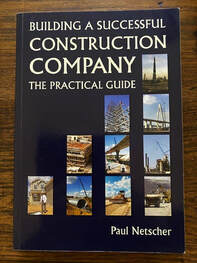 The world around us is continually evolving. Our customers are changing. Our customers’ requirements are changing. Tendering and pricing construction projects can be tedious but it’s a necessary part of the contracting business. We may think we’re too busy now to chase down new construction projects, but by the time we have the time it will probably be too late and the company will desperately need new work and opportunities would have passed us by. Don’t miss out on business opportunities! How will you ensure you don’t lose opportunities? Why good after service is essential in construction This article was first published on the ClockShark website - Get The Industries' #1 Time-Tracking AppRunning a field service or construction business takes coordination and a great team. With ClockShark you get the industries' #1 timesheet ap To read more about the author’s books and find out where you can purchase them visit the pages on this website by clicking the links below:
'Successful Construction Project Management: The Practical Guide' 'Building a Successful Construction Company: The Practical Guide' 'Construction Book reviews' To read more about the author visit the page 'Paul Netscher' Want to contact Paul Netscher please enter your details on 'Contacts' Find out how Paul Netscher can help you Order your books from Amazon Order your books from Amazon UK © 2023 This article is not to be reproduced for commercial purposes without written permission from the author. |
Archives
June 2024
Note: We welcome genuine comments, especially comments that add additional information to the subject matter in the article. We however reserve the right to remove inappropriate comments, which includes comments that have nothing to do with the subject, comments that include inappropriate language, and comments that are an advertisement for a product or company, or which include an advertising link. Comments must be in English. We will not enter into discussion on why a particular comment was removed.
CategoriesCopyright 2016 - The attached articles cannot be reproduced for commercial purposes without the consent of the author.
The opinions expressed in the attached articles are those of the writer. It should be noted that projects are varied and different laws and restrictions apply which depend on the location of the contractor and the project. It's important that the reader uses the supplied information taking cognisance of their particular circumstances. The writer assumes no responsibility or liability for any loss of any kind arising from the reader using the information or advice contained herein. "I have what I consider some of the best books on construction management."
Books are available from: Amazon.com Amazon.co.uk takealot.com kalahari.com Amazon.in Amazon.de Amazon.fr Amazon.it Amazon.com.au Powell's Fishpond uread bokus Amazon.ca Amazon.es Other retail stores Available in paperback or on Kindle "28 YEARS OF CONSTRUCTION PROJECT MANAGEMENT EXPERIENCE, DEVELOPING SUCCESSFUL CONSTRUCTION PROJECT MANAGERS AND BUILDING SUCCESSFUL CONSTRUCTION COMPANIES"
|

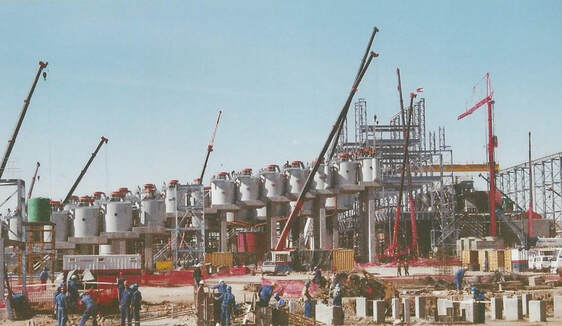
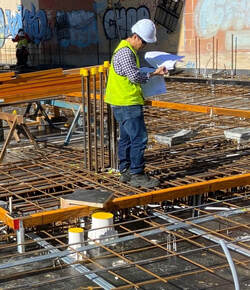




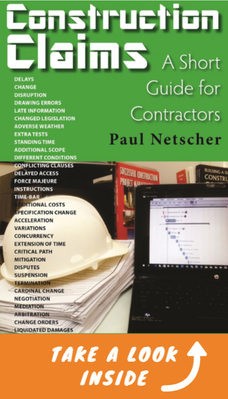

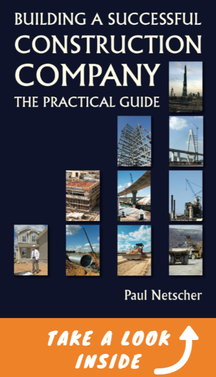




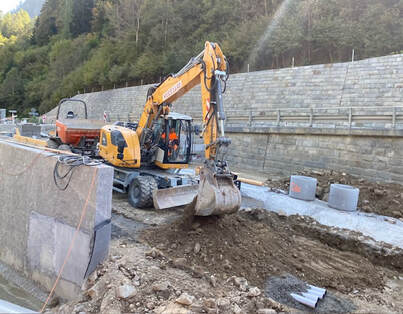
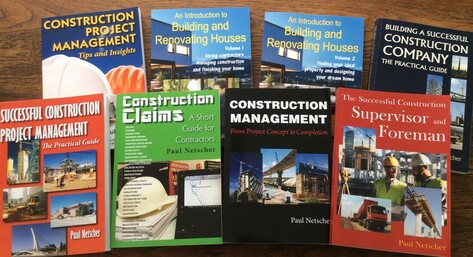

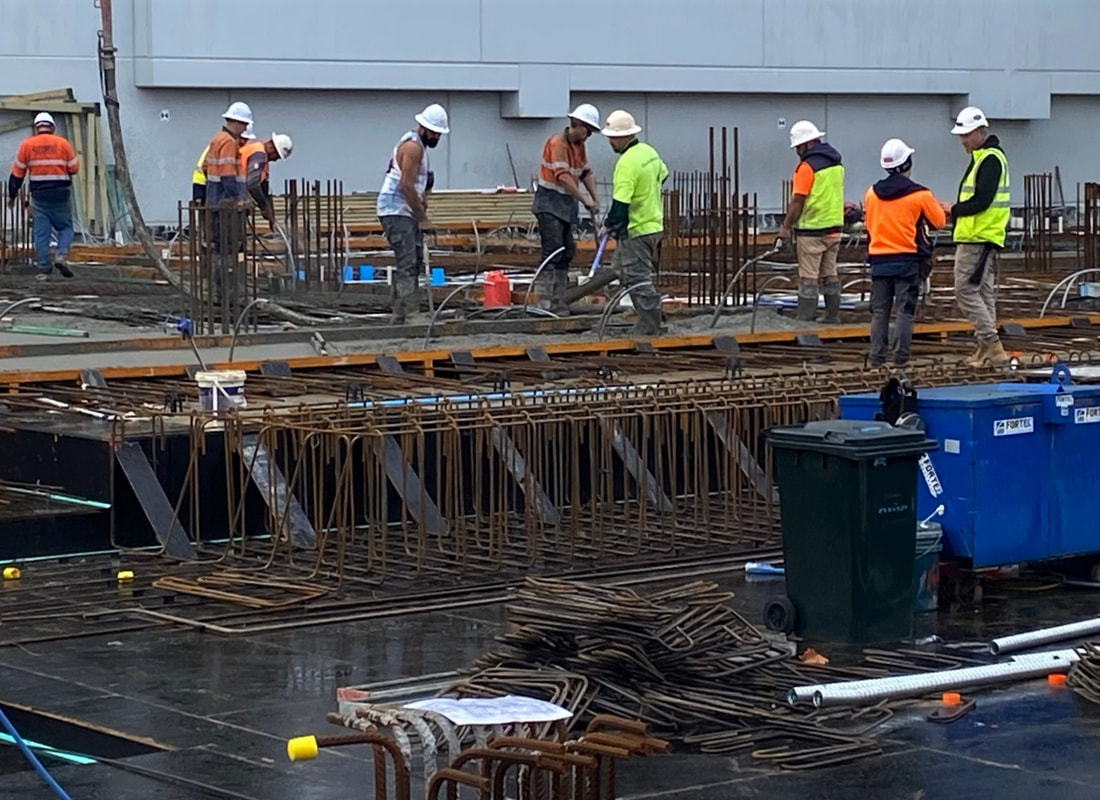
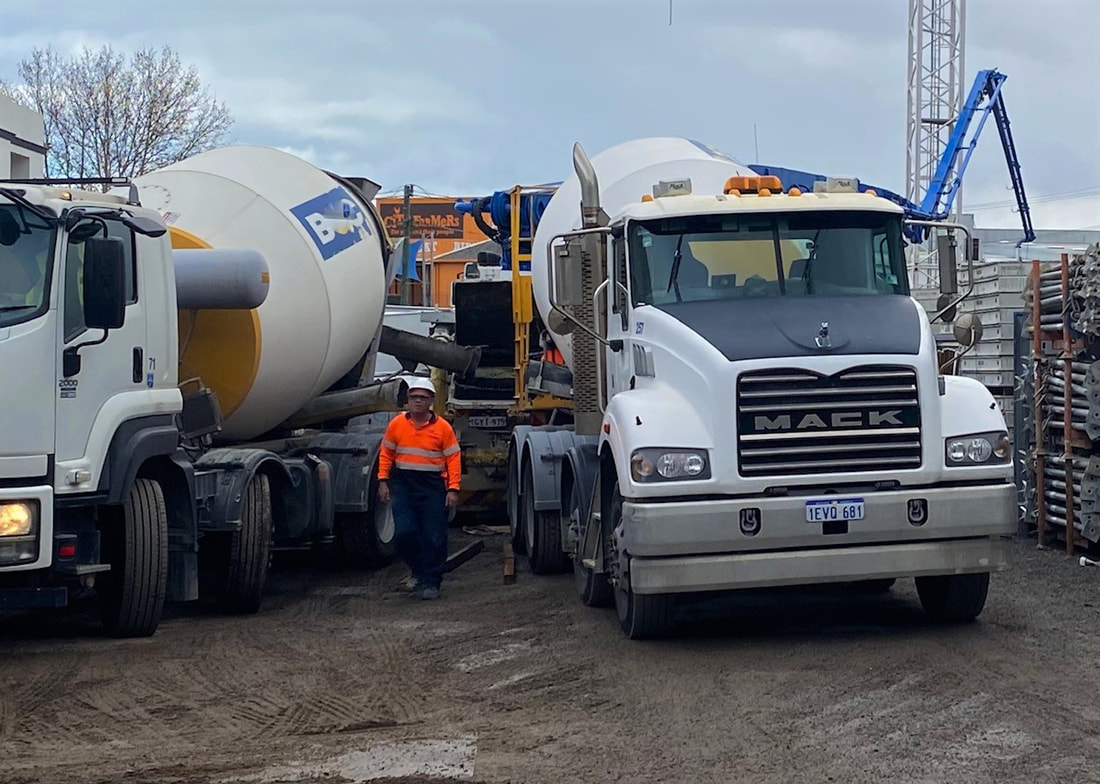



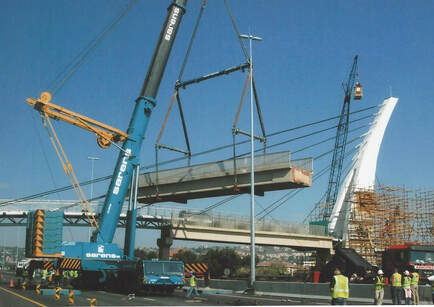



 RSS Feed
RSS Feed




